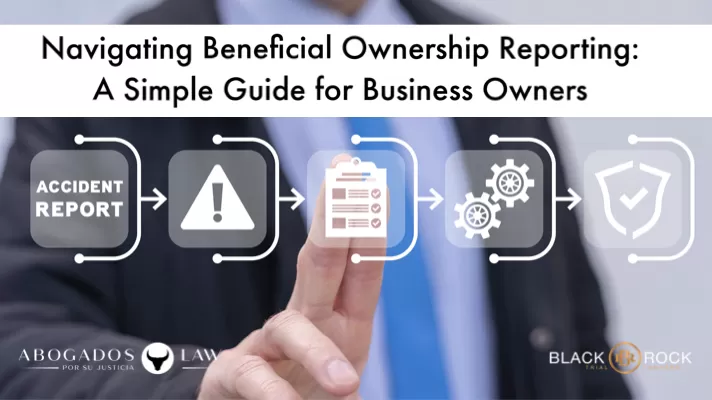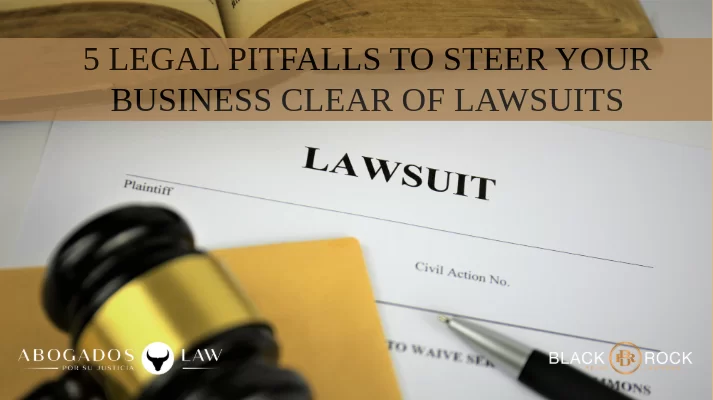The Corporate Transparency Act (CTA) was created to enhance transparency in business ownership and prevent illicit activities like money laundering by requiring companies to report their beneficial ownership information to the U.S. Department of the Treasury. The Financial Crimes Enforcement Network (FinCEN) is responsible for collecting and managing this data. This FAQ provides essential information about beneficial ownership reporting, who must comply, and recent legal updates that may impact certain companies.
Q1: What is beneficial ownership information (BOI)?
A: BOI refers to information about individuals who own or control a company. It helps identify the real people behind a business, not just its legal name.
Q2: Why do companies need to report their beneficial ownership information?
A: The Corporate Transparency Act requires this to prevent illegal activities like money laundering. It ensures transparency in company ownership to help authorities track suspicious behavior.
Q3: Who can access beneficial ownership information?
A: Government officials, both in the U.S. and abroad, can access BOI for national security and law enforcement purposes. Financial institutions can access it with the company’s consent.
Q4: When do I need to report my company’s beneficial ownership information?
A: Companies created before January 1, 2024, must report by January 1, 2025. Newer companies have 30 to 90 days after creation to submit their report, depending on the year of registration.
Q5: When will FinCEN start accepting beneficial ownership reports?
A: FinCEN will start accepting reports on January 1, 2024. No reports will be accepted before that date.
Q6: Is there a fee for submitting the report to FinCEN?
A: No, there is no fee for submitting your company’s beneficial ownership report. It can be filed electronically through FinCEN’s BOI E-Filing system.
Q7: Who can file a beneficial ownership report on behalf of a company?
A: Any authorized person, such as an employee, owner, or service provider, can file the report. They will need to provide basic contact information when submitting the report.
Q8: What kinds of companies are required to report beneficial ownership information?
A: Both domestic companies like corporations and LLCs, as well as foreign companies registered in the U.S., must report. These companies are referred to as “reporting companies.”
Q9: What was the outcome of the National Small Business United v. Yellen case regarding the Corporate Transparency Act?
A: On March 1, 2024, a federal court ruled that the Corporate Transparency Act exceeded Congress’s constitutional authority and blocked its enforcement against the plaintiffs. The Department of Justice is appealing the decision, but FinCEN will still enforce the law for other companies.
Q10: Who is currently exempt from reporting under the Corporate Transparency Act due to this court ruling?
A: The ruling exempts Isaac Winkles, his companies, the National Small Business Association, and its members as of March 1, 2024. They are not required to report beneficial ownership information while the court’s order is in effect.
Q11: Is the Corporate Transparency Act still in force for other companies despite the court case?
A: Yes, other companies must continue to comply with the law and report their beneficial ownership information, as required by FinCEN regulations. The court’s decision only applies to the specific plaintiffs in the case.
The Corporate Transparency Act remains a key tool in promoting transparency and reducing financial crime, with ongoing reporting requirements for most companies. While a recent court ruling has provided exemptions for a select group, the majority of businesses are still required to comply and submit beneficial ownership information.
Disclaimer:
Given ongoing legal developments and possible changes, all businesses should monitor updates regarding the Corporate Transparency Act and FinCEN regulations. Staying informed is crucial to ensure compliance and avoid penalties.
Written by Gil Sanchez, Esq.
Representing People + Businesses Throughout Florida
Offering Business + Entrepreneurship Legal Services:
1:1 Consultations
A La Carte Services
Business + Entrepreneurship Law Advisory Program (BELAW™)
Master Sessions
Civil Litigation



